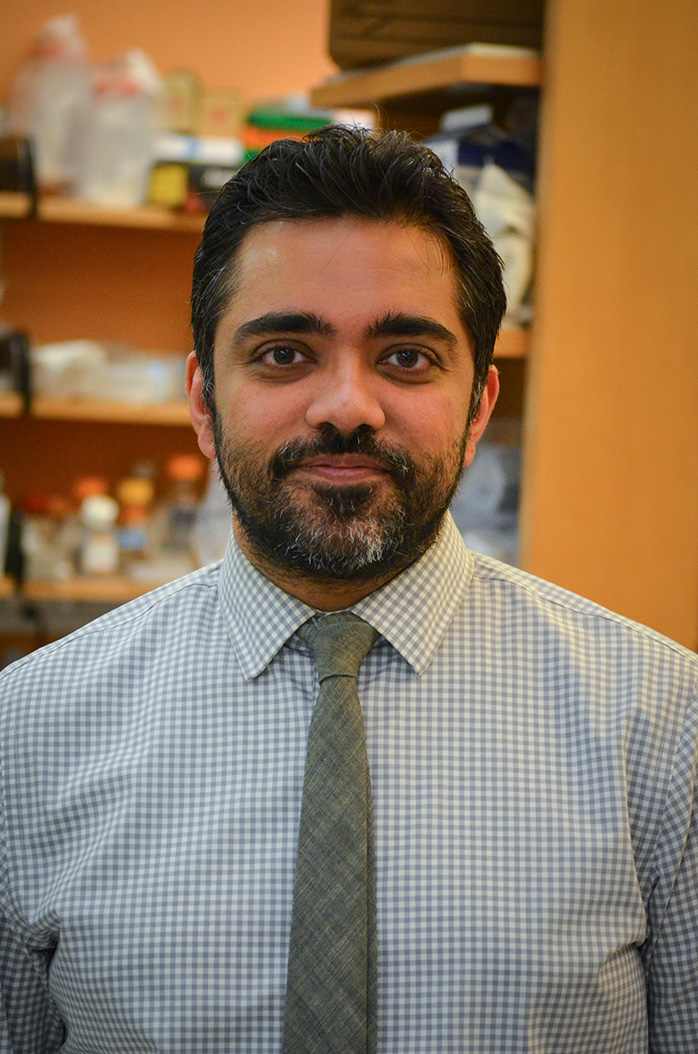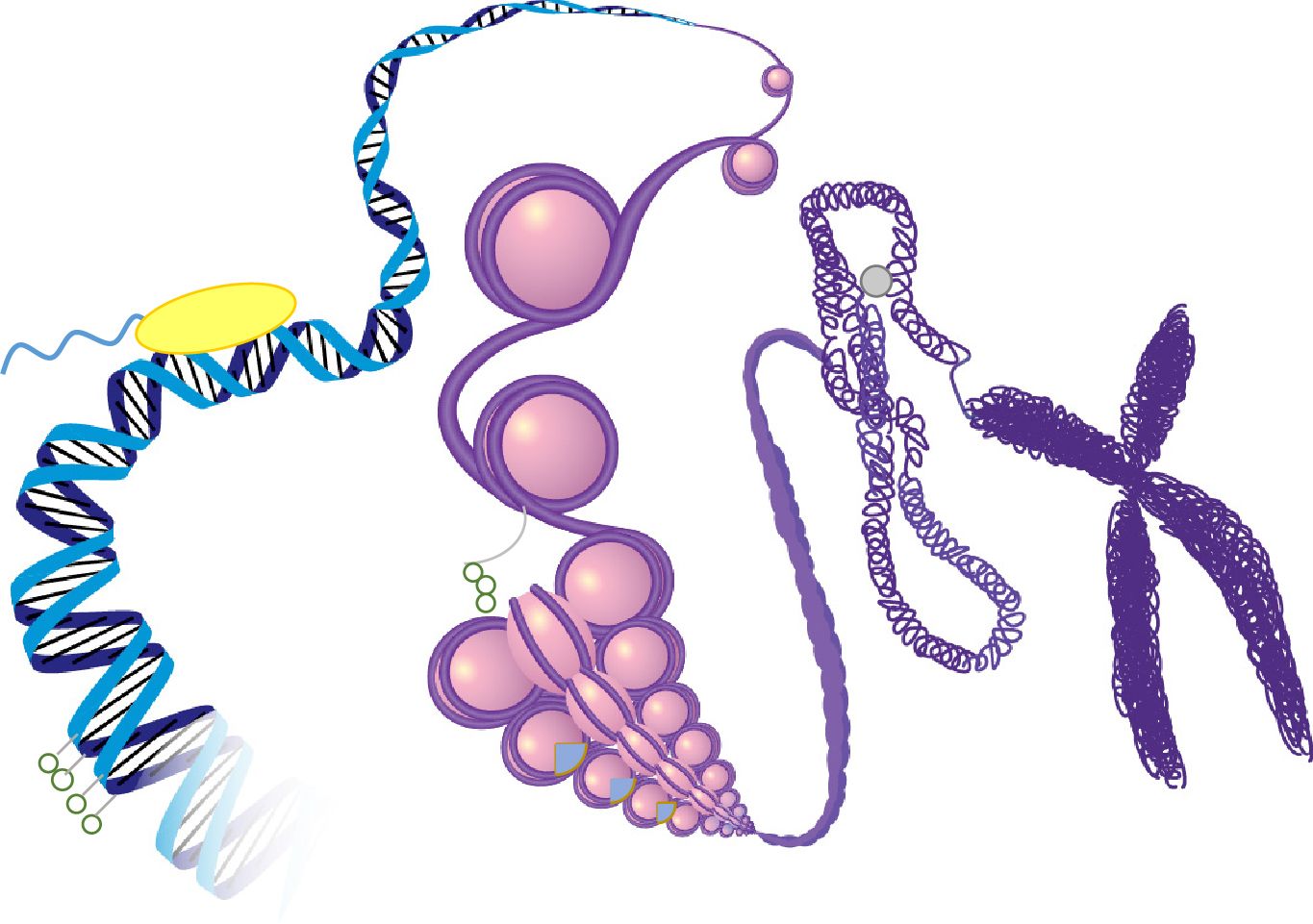
Research
In developmental contexts, diversification of chromatin enables the generation of diverse cell types from a single underlying genetic landscape. Plasticity of the epigenome has recently emerged as a hallmark of cancer, whereby tumor initiation and progression are facilitated by alterations to chromatin that permit proliferation, immune evasion, and metastasis. In my laboratory, we interrogate how this plasticity drives the responses to inflammation, injury, and oncogenic stress to define the key epigenetic mechanisms required for cell fate decisions, using the pancreas as a model system. These efforts are rooted in the notion that genetic determinants do not fully explain malignant phenotypes, and that in chromatin lies the key to targeting critical determinants of inflammatory injury, tumorigenicity and malignant progression.
Figure 1 Chromatin

Current Projects:
- Epigenetic memory
- Tissue allostasis
- Allele-specific chromatin dynamics
- Effector dependencies in tumor maintenance
- Regulatory logic of dynamic chromatin
Bio
Dr. Chandwani received his undergraduate degree in Economics from Harvard University and earned his medical degree at the Yale University School of Medicine. He then trained in General Surgery at Columbia University Medical Center and in Surgical Oncology at Memorial Sloan Kettering Cancer Center, where he was Chief Fellow for the Department of Surgery. Dr. Chandwani earned his Ph.D. from The Rockefeller University in the laboratory of Alexander Tarakhovsky and was a postdoctoral fellow in the laboratory of Steven D. Leach at MSKCC, prior to joining Weill Cornell Medicine in 2017.
Distinctions:
- National Pancreas Foundation Rising Star Award (2023)
- New York Super Doctors (2023)
- Fellow, Society of Surgical Oncology (2020)
- Fellow, American College of Surgeons (2020)
- Damon Runyon Clinical Investigator Award Finalist (2020)
- New York Super Doctors Rising Stars (2020, 2019, 2018)
- American Surgical Association Fellowship Award (2018)
